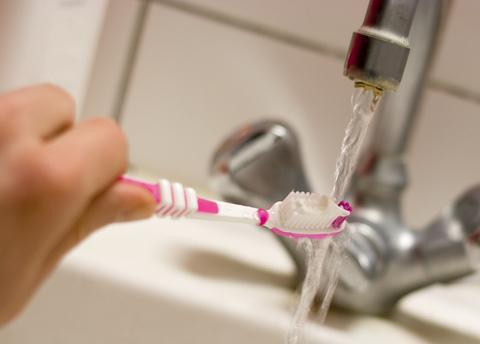The Five Most Common Reasons for Emergency Visits
- posted: Apr. 30, 2024
An emergency usually evokes panic, and for good reason. Emergencies don’t discriminate when it comes to time or place. They’ll happen during your vacation, at home, while you’re shopping for Read More
Why should I have my child’s wisdom teeth removed?
- posted: Apr. 23, 2024
The wisdom teeth are the last of the permanent molars to emerge from the gums. This can occur as early as age 17 or as late as 21. Though some Read More
Dental Insurance Benefits
- posted: Apr. 09, 2024
Dental insurance can be a great addition to your health care plan, but the way benefits are calculated can also make it a confusing one. If you have dental insurance, Read More
April is National Facial Protection Month
- posted: Apr. 02, 2024
The Importance of Facial Protection Americans from all walks of life should mark April as National Facial Protection Month on their calendars. The American Association of Pediatric Dentistry, Academy for Sports Read More
How do I know if my gums are receding?
- posted: Mar. 26, 2024
Gum recession, a common result of gum disease, occurs when the gum tissue that surrounds the teeth wears away or pulls back, forming pockets between the gumline and exposing more Read More
Why You Should Avoid Energy and Sports Drinks
- posted: Mar. 19, 2024
In a world where everything moves so quickly and teens and young adults find themselves pulling “all-nighters” or working long hours, energy drinks have grabbed the spotlight. You’ll have one Read More
Going Green for St. Patrick’s Day?
- posted: Mar. 12, 2024
Happily for all of us who like to celebrate with friends and family, there’s no need to be Irish to enjoy St. Patrick’s Day. Every March 17th, many of us Read More
March is National Nutrition Month!
- posted: Mar. 05, 2024
While you don’t have to wait to start eating right, March is the month the Academy of Nutrition and Dietetics asks everyone to pay special attention to what goes into Read More
Germs living on my toothbrush? Say it ain’t so!
- posted: Feb. 27, 2024
You may have heard talk about the germs that can reside on your toothbrush and thought, “really?” It’s true—there are several kinds of bacteria that can lurk on the bristles of Read More
Team Dark Chocolate
- posted: Feb. 13, 2024
Valentine’s Day is the holiday to celebrate all the treasured relationships in your life. It’s a time to honor love in all shapes and forms with cards, social gatherings, and Read More
Playing “Tooth or Dare”
- posted: Feb. 06, 2024
Our teeth perform several vital roles for us. We use them to bite and chew, to help form words, to support our facial structure. And never underestimate the power of Read More
Diabetes and Dental Care
- posted: Jan. 30, 2024
When most people think of complications of diabetes, they think of an increased risk of blindness, limb amputation, heart disease, and neuropathy. However, the doctor and our team want you Read More
Need Another Reason to Stop Biting Your Nails?
- posted: Jan. 23, 2024
Painful nails and cuticles, ruined manicures, reluctance to shake hands—there are so many good reasons to overcome the nail biting habit. But did you know that biting your nails is Read More
Five Things You Didn't Know About Cavities
- posted: Jan. 16, 2024
Most people know when they have a cavity—they can either see it on their tooth or... ouch! They can feel it! But there are certain things that many of our Read More
What to Do When Your Child Has a Loose Tooth
- posted: Jan. 09, 2024
When your child loses a tooth for the first time, you both have a lot to look forward to. Sharing in the “I’m a big kid!” excitement. Tales of the Read More















